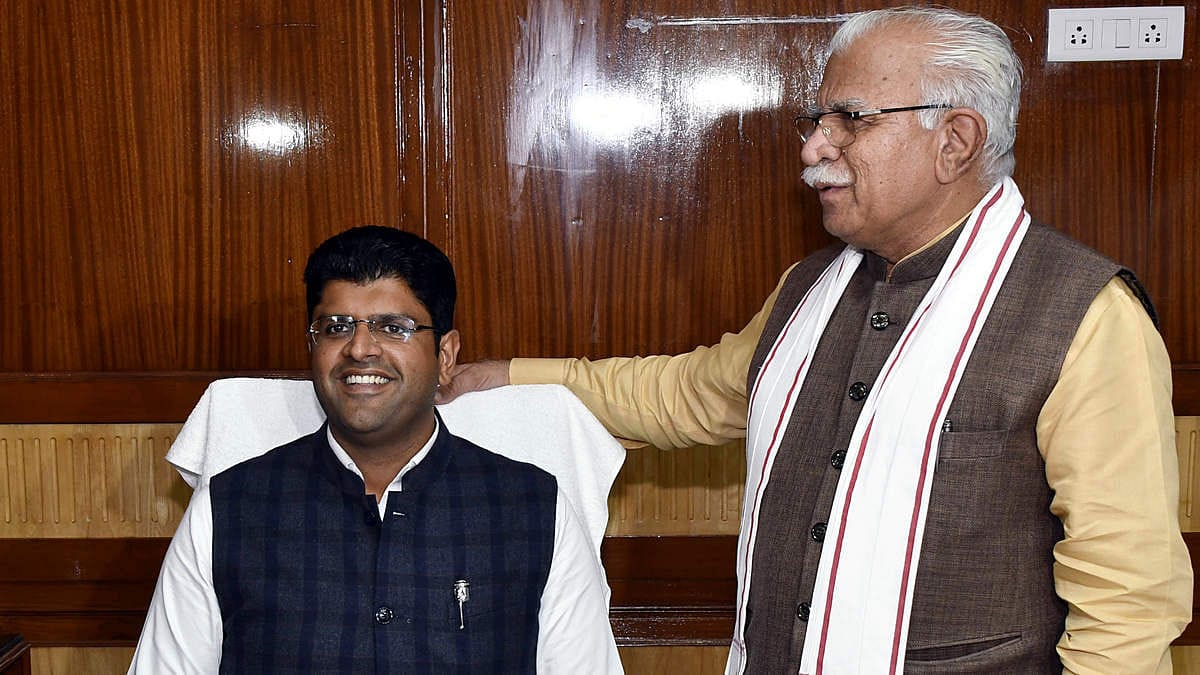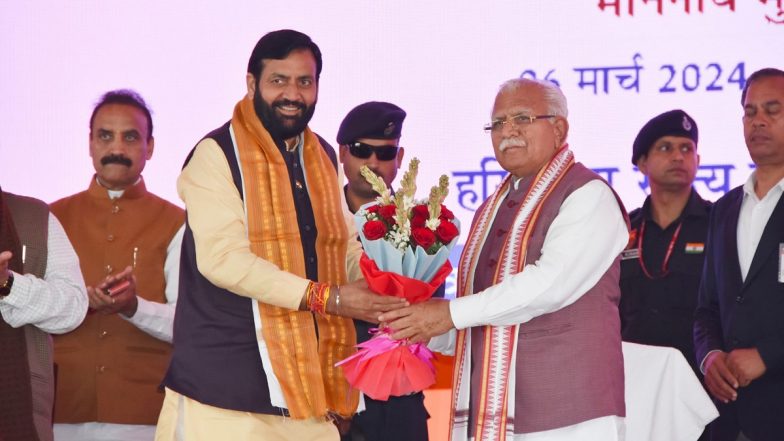Image Source:Mint
Nayab Singh Saini, aged 54 at the time, ascended to the position of Haryana’s 11th chief minister, marking a significant milestone in his political journey within the Bharatiya Janata Party (BJP). His rise to power symbolized a trajectory that began years earlier, rooted in his close association with his predecessor, Manohar Lal Khattar, who played a pivotal role in shaping Saini’s political career.
Born on January 25, 1970, in Mirzapur Majra village, Ambala district, Saini laid the foundation for his political endeavors while pursuing his education. Armed with a BA degree from BR Ambedkar Bihar University and a law degree from Chaudhary Charan Singh University, he delved into politics and aligned himself with both the BJP and its ideological parent, the Rashtriya Swayamsevak Sangh (RSS), in 1996.
Saini’s ascent within the BJP ranks was gradual but steady. By the early 2000s, he had already established himself as a promising figure within the party, serving as the general secretary of the BJP’s Yuva Morcha in 2002, and eventually assuming the presidency of the same unit by 2005.
In 2009, Saini ventured into electoral politics, contesting from the Naraingarh constituency, a seat historically elusive for the BJP. Despite an initial setback, where he secured only 6.86% of the vote and finished fifth, Saini remained undeterred. His perseverance paid off five years later when, amidst the BJP’s ascension to power in Haryana, he orchestrated a remarkable turnaround in the same constituency.
During the 2014 elections, Saini clinched victory with 39.76% of the vote share, triumphing over the incumbent MLA, Ram Kishan, by a margin exceeding 24,000 votes. This triumph not only solidified his foothold in electoral politics but also underscored his growing influence within the BJP’s state apparatus.
As Saini assumed the mantle of Haryana’s chief minister, succeeding his mentor Khattar, he embarked on a new chapter in his political journey, poised to navigate the complexities of governance and steer the state towards progress and prosperity
BJP – JJP ALLIANCE BREAKS IN HARYANA

Image Source: The Print
The Bharatiya Janata Party (BJP) and Dushyant Chautala’s Jannayak Janta Party (JJP) alliance in Haryana broke over the allocation of Lok Sabha seats. The rift emerged when the JJP expressed its desire to contest a certain number of seats in the upcoming Lok Sabha Elections, which the BJP refused to accommodate. This demand highlighted underlying tensions within the alliance regarding power-sharing and representation.
The breakdown in negotiations between the two parties signaled a potential shift in political dynamics within Haryana. Dushyant Chautala’s JJP, a relatively new entrant in the state’s political landscape, had forged an alliance with the BJP to form a coalition government after the 2019 Haryana Assembly elections. However, this latest disagreement over seat allocation underscored the challenges of maintaining unity and shared objectives in a coalition government, especially when it comes to electoral strategy and distribution of power.
The split between the BJP and the JJP could have broader implications for both parties and the political landscape of Haryana. It may lead to increased competition and fragmentation within the state’s political arena, potentially altering the electoral calculus for all parties involved. As the Lok Sabha Elections approach, the fallout from this rift could reshape alliances and strategies, ultimately influencing the outcome of the polls in Haryana.
BJP led Nayab Singh Saini passes floor test in Assembly
The Nayab Singh Saini-led BJP government in Haryana successfully secured a vote of confidence in the state Assembly on Wednesday, solidifying its position in the political landscape. With 90 members in the assembly, the Bharatiya Janata Party (BJP) held a significant sway with 41 MLAs. Additionally, the BJP garnered support from six out of seven independent legislators and the solitary Haryana Lokhit Party MLA, Gopal Kanda.
During the two-hour deliberation on the motion, various perspectives were voiced, reflecting the diversity of opinions within the assembly. Despite the significant opposition, the government emerged victorious through a voice vote, signifying a broad consensus in its favor.
However, the process was not without its share of intrigue. The Jannayak Janata Party (JJP), with its 10 legislators, had issued a whip instructing its members to abstain from the voting process. Despite this directive, when the moment of truth arrived, five JJP MLAs chose to exit the chamber, altering the expected course of events.
This unexpected turn of events added a layer of complexity to the proceedings, highlighting the fluidity of alliances and the dynamic nature of politics in the region.
Ultimately, the outcome of the confidence motion not only reaffirmed the strength of the ruling coalition but also underscored the intricate dynamics at play within the Haryana political landscape.



